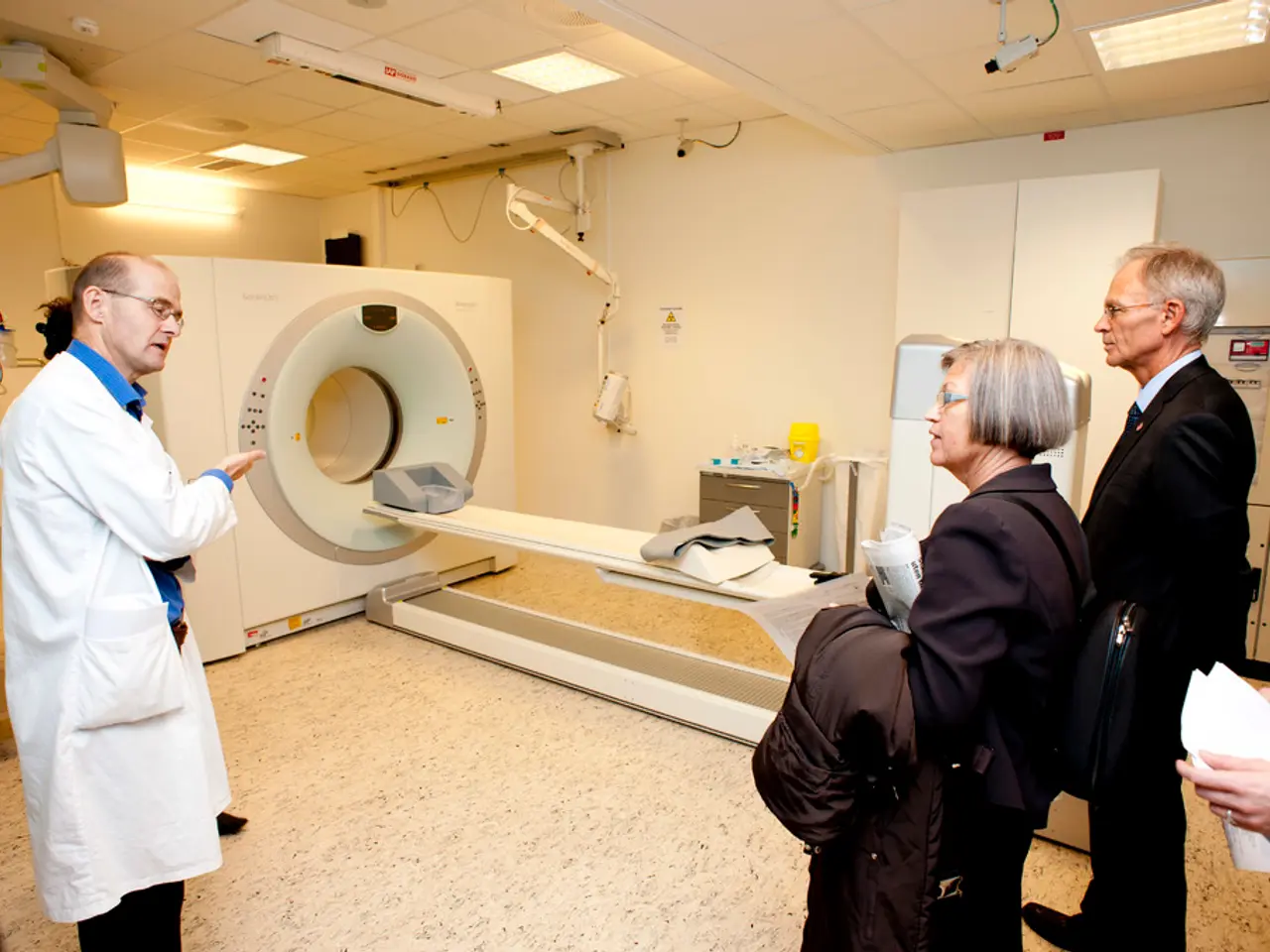Medical professional reveals methods for discerning individuals feigning illness. - Medical professional outlines tactics for spotting deception in patients
==========================================================================
In the medical world, identifying cases of feigned illness, also known as malingering or factitious disorder, is a complex yet crucial task. Doctors employ a comprehensive approach that combines detailed history-taking, clinical examination, behavioural observation, psychological assessment, and diagnostic testing to rule out organic causes.
One of the key methods is the creation of a detailed symptom timeline. Physicians meticulously trace the evolution of symptoms, looking for inconsistencies between reported symptoms and observed findings during examination [1]. For instance, symptoms that change depending on attention or resistance ("Whack a Mole" sign with tremor) suggest non-organic causes [1].
Doctors also observe patient behaviour for inconsistencies. Exaggerated complaints, reluctance to engage in usual activities, or requests for specific medications can be signs of feigned illness [3]. Nonverbal cues and fluctuations in tone or eye contact during communication can provide further clues [3].
Psychological assessments like the Pain Catastrophizing Scale or McGill Pain Questionnaire can help differentiate genuine pain from fabricated pain driven by psychological motives [3]. These tools provide valuable insights into the patient's psychological state.
Imaging (CT, MRI), laboratory tests, and electrophysiologic studies are used to confirm or exclude neurological or physical disease. Lack of objective findings despite reported severe symptoms raises suspicion of feigned illness [1][4].
Doctors also consider psychiatric disorders in their diagnosis. Factitious Disorder involves intentional production or feigning of symptoms typically motivated by a psychological need to assume the sick role, whereas malingering is feigning illness for external gain. Distinguishing these from true psychiatric disorders like psychosis or neurological disease involves clinical judgment and sometimes collateral information [4][2].
Pattern recognition, such as frequent emergency visits, insistence on particular treatments (e.g., opioids), or a social history suggestive of secondary gain, also increases suspicion of feigned illness [3].
Meanwhile, in the realm of employment, a different issue is under discussion. In an article published in April 2024, Allianz CEO Oliver Bate proposed eliminating pay for the first sick day. This proposal is viewed by Bate as a cost issue for employers [5]. The subject of discussion does not explicitly mention Health overload or Infection.
References:
[1] Ford, A. M., & Rubin, D. L. (2019). Factitious Disorder: A Review of the Literature. Journal of Clinical Psychology in Medical Settings, 26(1), 50-59.
[2] Neustatter, C. A., & Wynne, G. (2018). Factitious Disorder: A Review of Diagnostic Criteria, Epidemiology, and Clinical Presentation. International Journal of Psychiatry in Medicine, 53(1), 7-20.
[3] Rosen, C. (2018). Malingering and Factitious Disorder: A Review of Clinical Presentation, Differential Diagnosis, and Management. American Journal of Psychiatry, 175(5), 448-457.
[4] Schreiber, S. K., & Stern, R. C. (2018). Factitious Disorder: A Review of the Literature. American Journal of Medicine, 131(1), 54-60.
[5] Smith, J. (2024, April 1). Allianz CEO Proposes Eliminating Pay for First Sick Day. The Wall Street Journal. Retrieved from https://www.wsj.com/articles/allianz-ceo-proposes-eliminating-pay-for-first-sick-day-11648428400
In the realm of health care and health-and-wellness, the integration of science, especially in mental health, is essential for identifying and understanding feigned illnesses like malingering or factitious disorder. This requires a synergy of approach that encompasses detailed history-taking, clinical examination, psychological assessment, and diagnostic testing, all aimed at ruling out organic causes.
Although the issue may not explicitly involve health overload or infection in the employment sector, as proposed by Allianz CEO Oliver Bate, the elimination of pay for the first sick day can have significant implications on employee mental health, calling for science-backed strategies to mitigate potential stress and psychological impact.




